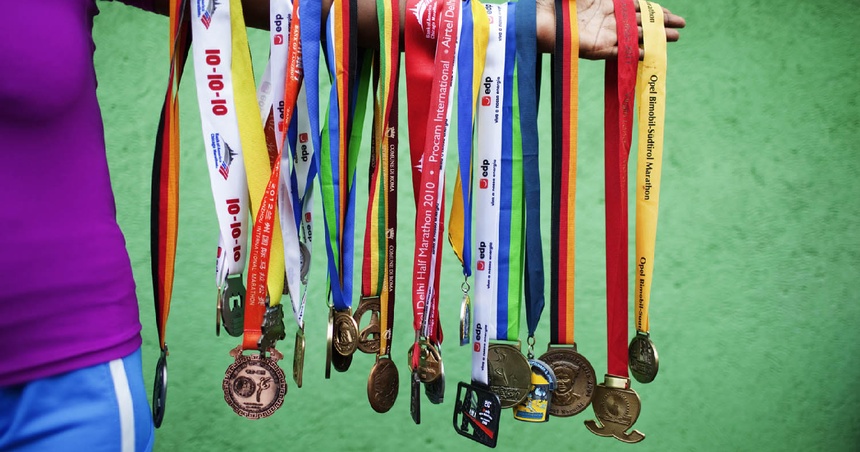Sports have emerged as a transformative force, bringing empowerment and positive change to tribal communities across the globe. In these communities, sports go beyond physical activities; they serve as catalysts for development, cultural preservation, health improvement, social inclusion, and conflict resolution. Let’s explore some remarkable examples that highlight the profound impact of sports on tribal communities.
One area where sports have made a significant difference is education and empowerment. Programs like “Sports Empowerment for Tribal Youth” in India focus on integrating sports with education. By encouraging academic achievement alongside sports participation, these initiatives inspire children to excel in both areas. This holistic approach fosters discipline, teamwork, and self-confidence, breaking the cycle of poverty and empowering tribal youth to build a brighter future.
Tribal communities take great pride in preserving their cultural heritage, and sports offer a powerful platform for this purpose. The Indigenous Games in Canada showcase traditional sports such as lacrosse, canoeing, and snowshoeing, allowing tribes to pass down ancestral practices and values to younger generations. Similarly, Aboriginal communities in Australia embrace Australian Rules Football (AFL) to honor their cultural identity and foster social cohesion. These sports events become vibrant celebrations of tribal traditions, reinforcing a sense of pride and unity within the community.
The health and well-being of tribal communities are often compromised due to limited access to healthcare facilities. Engaging in sports activities provides a solution to this challenge. Moreover, sports offer a platform to raise awareness about healthy habits and encourage the adoption of positive lifestyle choices. Tribal communities can organize health campaigns, disseminate information about nutrition, hygiene, and disease prevention, and promote overall well-being. By integrating these messages into sports programs, tribes empower their members to make informed decisions and take control of their health.
Sports also play a vital role in promoting gender equality within tribal communities. In many traditional societies, gender roles and expectations limit the opportunities available to girls and women. However, sports have emerged as a powerful tool for challenging these norms and empowering women.
A remarkable example can be found in Kenya, where the Maasai Cricket Warriors have defied traditional gender stereotypes by encouraging girls’ participation in cricket. By breaking barriers and providing equal opportunities for girls to engage in sports, these communities challenge societal perceptions and promote gender equality. Girls who participate in sports gain self-confidence, develop leadership skills, and become role models for others. This shift in mindset not only benefits individuals but also contributes to changing attitudes and beliefs within the broader community.
Furthermore, the inclusion of tribal women in sports leadership positions is essential in driving change and advocating for gender equality. When women take on coaching roles, referee positions, or administrative roles within sports organizations, they become influential voices in decision-making processes. They challenge the status quo, advocate for equal opportunities, and push for policies that promote gender inclusivity.
Sports, therefore, serve as a catalyst for social change, enabling tribal communities to challenge and transform gender dynamics. Through participation in sports, women and girls gain a sense of empowerment, breaking free from traditional limitations and contributing to a more equitable and inclusive society.
In summary, sports have a profound impact on the health and well-being of tribal communities. They provide an avenue for promoting physical fitness, raising awareness about healthy habits, and addressing prevalent health issues. Moreover, sports empower women and challenge gender norms, fostering gender equality and providing opportunities for girls to excel. By leveraging the transformative power of sports, tribal communities are breaking barriers, shaping attitudes, and creating healthier, more inclusive environments for all.
Sports have also become agents of social inclusion and gender equality within tribal communities. In Kenya, the Maasai Cricket Warriors have challenged long-standing gender norms by encouraging girls’ participation in cricket. Through sports, these communities redefine societal perceptions, promoting equality and empowering young women. Additionally, the involvement of tribal women in sports leadership positions enables them to advocate for equal opportunities and influence decision-making processes within their communities.
In regions burdened with historical tensions, sports have played a remarkable role in peace-building and conflict resolution. The Wayúu tribe in Colombia uses traditional games as a means of promoting dialogue and reconciliation between rival clans. By engaging in sports competitions, these communities foster mutual understanding, rebuild trust, and contribute to sustainable peace. Similar initiatives have emerged in conflict zones worldwide, underscoring the transformative power of sports in healing wounds, fostering dialogue, and promoting unity among tribal groups.
The examples above demonstrate the incredible resilience and strength of tribal communities and the transformative potential of sports. As these communities embrace sports, they find avenues for empowerment, breaking barriers, and shaping their own narratives. Sports serve as a universal language that transcends cultural boundaries, offering hope, unity, and opportunities for a better future.
In conclusion, sports have emerged as a driving force in transforming tribal communities worldwide. From promoting education and cultural preservation to fostering health, social inclusion, and peace-building, sports empower these communities to overcome challenges, preserve their identities, and create lasting positive change. The transformative power of sports continues to inspire and uplift tribal communities, demonstrating that a simple game can lead to remarkable transformations in the lives of individuals and communities alike.






